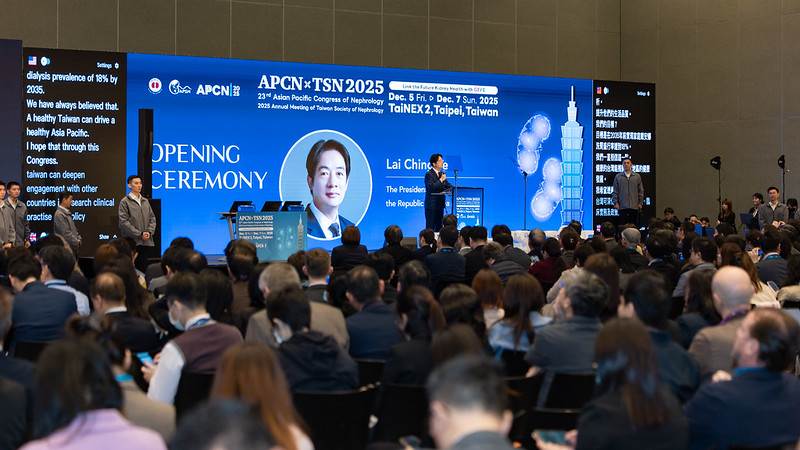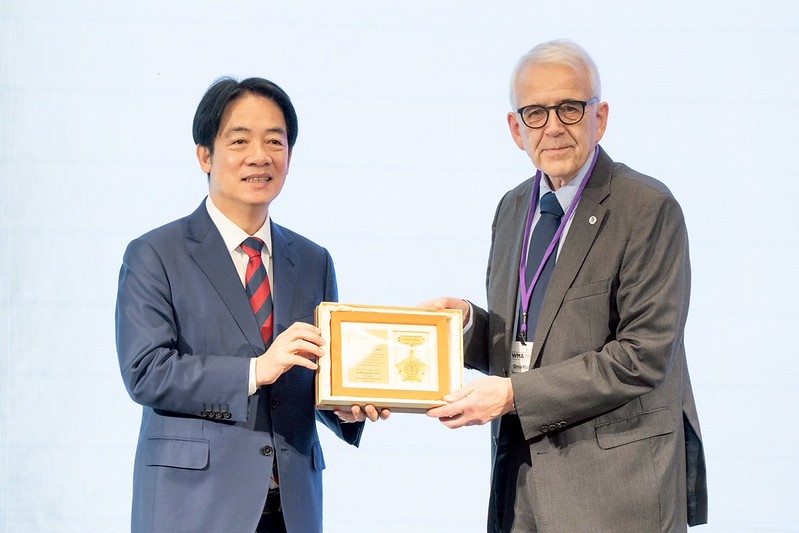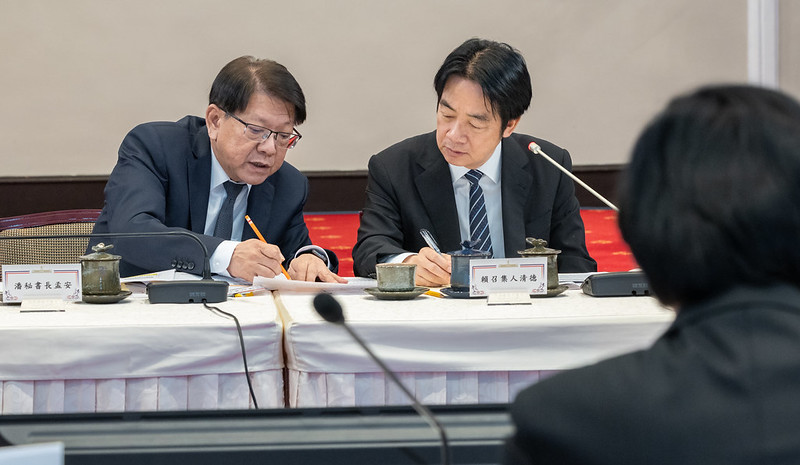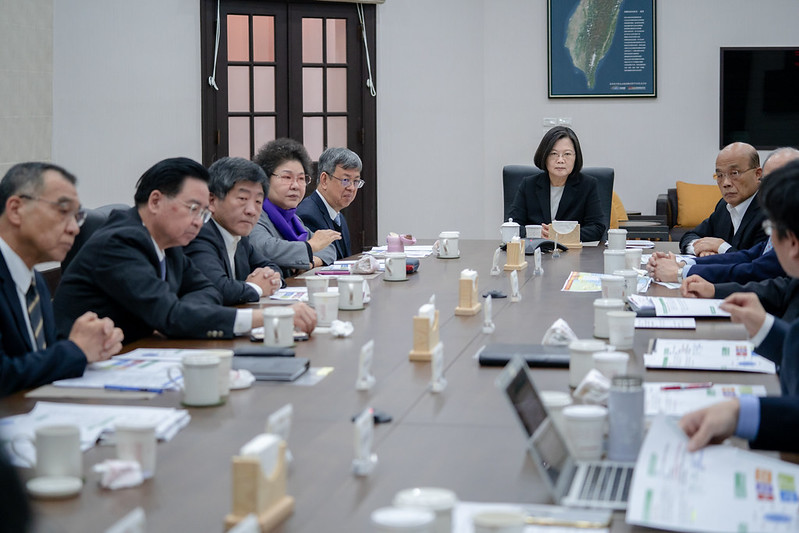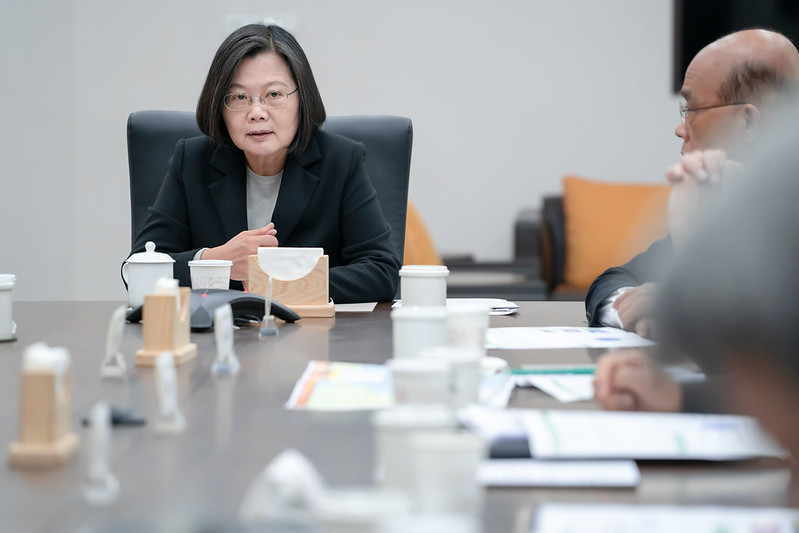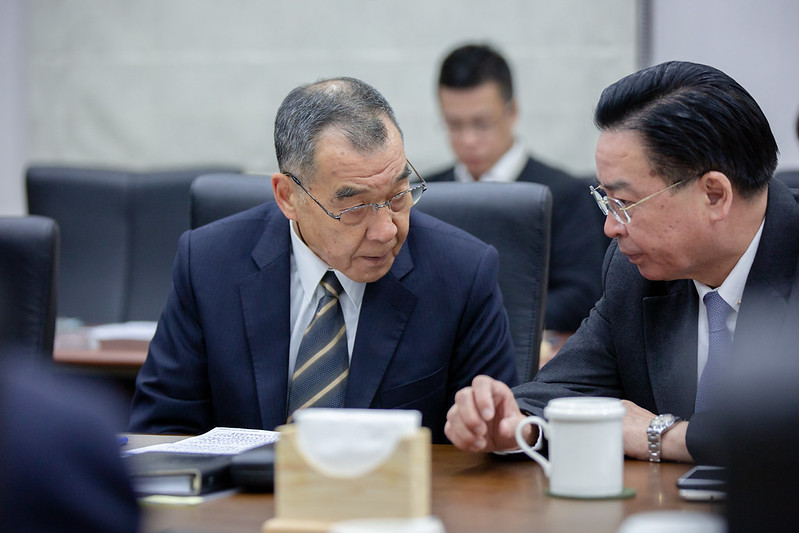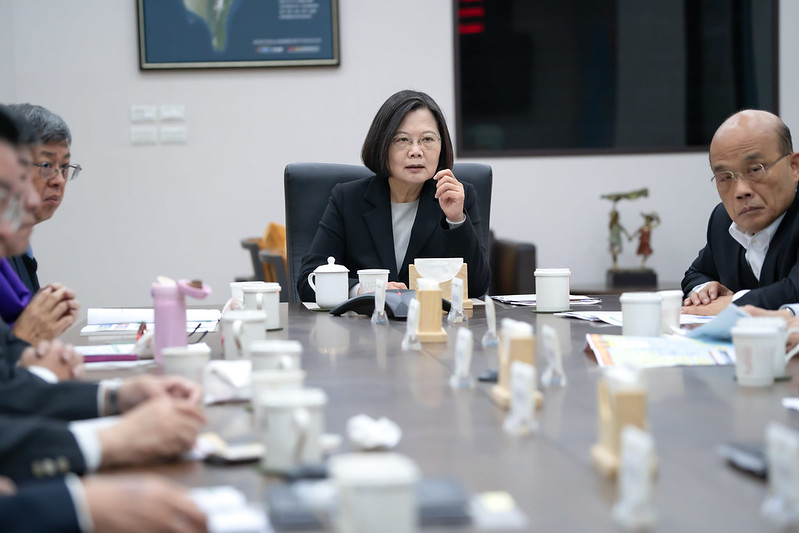News & activities
 News releases
News releases
In response to the Wuhan coronavirus outbreak in China, President Tsai Ing-wen called a high-level national security meeting on the morning of January 22 to hear briefings from related government agencies about their efforts to prevent an outbreak. After the meeting, the president issued four directives regarding: staying abreast of the latest information on the outbreak; joint international disease control efforts; responding to the spread of misinformation and disinformation; and the government's follow-up response measures. The president also asked citizens to remain calm and maintain their normal daily lives, stay tuned for disease information provided by the government, and strengthen their personal hygiene routines, which will help avoid the potential threat of an outbreak.
The president issued four directives as follows:
First, coordinate between government agencies and manage disease detection well
This coronavirus outbreak coincides with the Lunar New Year, so many Taiwanese who do business and live in China will return to Taiwan and many will travel during that period. The Executive Yuan and the Ministry of Health and Welfare should coordinate Cabinet-level agencies and local governments effectively to detect and manage the disease at border entry and exit points, medical facilities, and local communities. We must spare no effort to contain the contagion.
Citizens are asked to remain calm, maintain their normal daily lives, stay tuned for outbreak information provided by the government, and strengthen their personal hygiene routines.
Second, stay abreast of the latest developments and information regarding the international outbreak
Both internationally and in China, spread of the disease will accelerate along with travel during the Lunar New Year period. The Mainland Affairs Council and the Ministry of Foreign Affairs should help monitor the latest disease information from other countries, including response strategies and measures, and help verify that information as necessary.
As a responsible member of the international community, we should report the latest domestic outbreak information to the World Health Organization and other international bodies in a timely manner to assist with joint disease control efforts. If international cooperation is required, the Ministry of Foreign Affairs should provide full assistance.
Third, clear communication regarding the outbreak and timely clarification of misinformation and disinformation
To ensure citizens' access to the latest information, avoid unnecessary panic, and coordinate various disease control efforts, all government spokespersons should provide timely disease information and health maintenance measures. We should provide timely, comprehensive, and accurate information to the people regarding preventive measures through expert explanations, mass media, news tickers, and social media, to clarify questions. Any misinformation or disinformation must be clarified immediately to avoid confusion and alarm.
Fourth, adjust the response level and action based on developments; preventive efforts must continue uninterrupted over the Lunar New Year vacation
There could be a serious increase in the number of confirmed coronavirus cases in China or overseas during the next few days and the Lunar New Year holiday, even including suspected cases in Taiwan. The Executive Yuan and Ministry of Health and Welfare must respond to developments and possible expansion of the outbreak by adjusting the response level of the central epidemic command center. Interministerial coordination and corresponding measures should be initiated, and this work should not be affected by the Lunar New Year vacation. Responsive measures by all government agencies should change in response to any intensification in the outbreak.
Attendees included Vice President Chen Chien-jen, Premier Su Tseng-chang (蘇貞昌), Secretary-General to the President Chen Chu (陳菊), National Security Council Secretary-General David T. Lee (李大維), Minister of National Defense Yen Teh-fa (嚴德發), Foreign Minister Joseph Wu (吳釗燮), Minister of Health and Welfare Chen Shih-Chung (陳時中), Mainland Affairs Council Minister Chen Ming-tong (陳明通), Minister without Portfolio John C.C. Deng (鄧振中), National Security Bureau Director-General Chiu Kuo-cheng (邱國正), National Security Council Advisors Fu Don-cheng (傅棟成), Chen Chun-lin (陳俊麟), Kuo Lin-wu (郭臨伍), Deputy Secretary-General to the President Liu Chien-sin (劉建忻), and Taiwan Centers for Disease Control Director General Chou Jih-Haw (周志浩).
